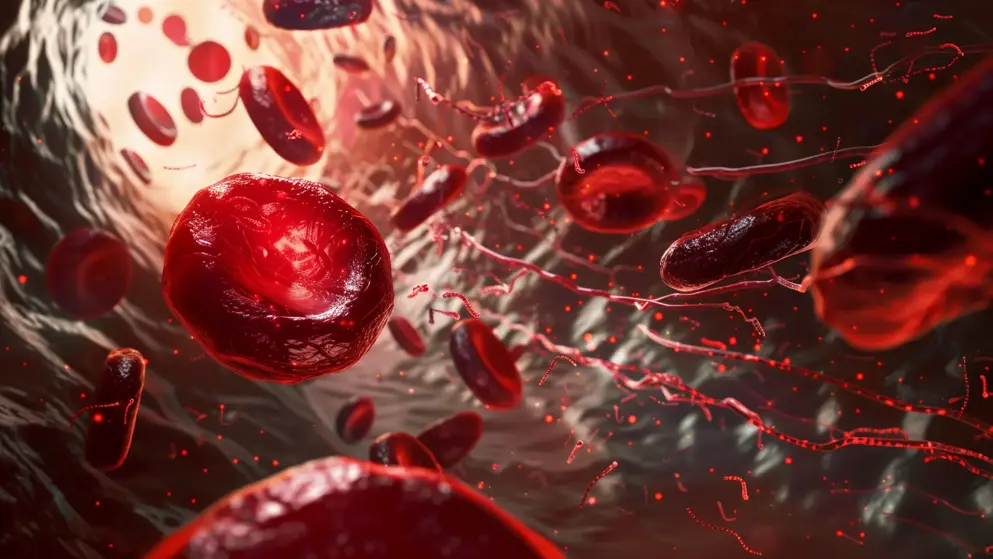SYMPLICITY HTN-3 trial data show sustained long-term blood pressure reductions with Symplicity renal denervation procedure
Medtronic plc announced long-term results from the SYMPLICITY HTN-3 clinical trial
Subjects who underwent radiofrequency renal denervation (RF RDN) with the first generation Symplicity renal denervation system, had a statistically significant reduction in office and ambulatory blood pressure compared to subjects in the sham control group. The data were presented as Late-Breaking Clinical Science at the 34th Transcatheter Cardiovascular Therapeutics (TCT) conference, the annual scientific symposium of the Cardiovascular Research Foundation, and published simultaneously in The Lancet.
"In this long-term follow-up from the SYMPLICITY HTN-3 trial, we observed significant reductions in the blood pressures of patients who underwent treatment with renal denervation, with no long-term complications emerging from this minimally invasive procedure," said Deepak L. Bhatt, M.D., M.P.H., executive director of Interventional Cardiovascular Programs at Brigham and Women's Hospital and Professor of Medicine at Harvard Medical School; and co-principal investigator for the SYMPLICITY HTN-3 trial. "These findings provide important insights into the evolution of patients' blood pressure control, with and without renal denervation, in a scenario more akin to the real-world setting— under everyday physician management without the frequent follow up visits and monitoring that occur in research settings. The results illustrate that for certain patients with high blood pressure, despite attempts to adhere to multiple medications and modify their lifestyles, their blood pressure remains poorly controlled, putting them at risk for cardiovascular complications such as stroke."
A total of 535 patients with treatment resistant hypertension were randomized 2:1 to RDN (n=364) vs. sham control (n=171). After six months, 101 patients in the sham control arm underwent treatment with RDN (crossover group). When conducting a longer-term analysis with all available data, and accounting for control crossover patients by using their last observation carried forward (imputation), the results through three years are as follows: i. 26.4 mm Hg reduction in office systolic blood pressure (OSBP) for the RDN group (n=219) versus a reduction of 5.7 mm Hg in OSBP for the sham control group (n=134; adjusted treatment difference: 22.1 mm Hg, p<0.0001). ii. 15.6 mm hg reduction in 24-hour ambulatory systolic blood pressure (asbp) for the rdn group (n="152)" and –a 0.3 mm hg reduction in 24-hour asbp for the sham control group (n="119);" adjusted treatment difference: 16.5 mm hg, p><0.0001). iii. on average, 17.5% of rdn patients spent time in target range (ttr), a cumulative measure in which bp measures are estimated through time, vs. 8.2% ttr for sham patients (p><0.0001). medtronic symplicity blood pressure procedure1 demonstrated long-term safety in line with expected outcomes for this patient population medtronic.
In 2014, Medtronic announced that at six-months the HTN-3 trial met its primary safety endpoint but did not meet its primary or secondary efficacy endpoints due to multiple confounding factors, including the influence of medication changes, specific patient subgroups, and procedural factors. This latest analysis of the SYMPLICITY HTN-3 trial examined the long-term safety and efficacy of RDN in hypertensive patients who were on antihypertensive medications and received treatment with the Symplicity blood pressure procedure. This included patients from the sham control arm who crossed over to RDN after the initial six-month primary endpoint analysis.
"While we did not find a significant six-month blood pressure reduction difference in RDN versus sham in HTN-3, we felt that there was much to learn by following HTN-3 patients for a longer time period, particularly in those sham patients with sustained blood pressure elevations who 'crossed over' to RDN," said Jeffrey Popma, M.D., chief medical officer for the Coronary & Renal Denervation business and the Structural Heart & Aortic business, which are part of the Cardiovascular Portfolio at Medtronic. "Using standard imputation methods for BP comparison in cross-over patients, we were pleased to see a sustained benefit in three-year blood pressure reduction in HTN-3 patients treated with RDN. This study adds important, incremental information to the totality of evidence now supporting the long-term effect of RDN in patients with hypertension. Documentation of medication compliance and improvements made to the new Spyral catheter may have the potential to further influence clinical outcomes in patients enrolled in the SPYRAL portfolio of studies."
"Combined, with more than 7,000 patients published in clinical studies, we now have a greater understanding of patient behavior and RDN impacts over the long-term," said Jason Weidman, senior vice president and president of the Coronary & Renal Denervation business, which is part of the Cardiovascular Portfolio at Medtronic. "This analysis adds to the extensive long-term, sham-controlled evidence for the Symplicity blood pressure procedure that has consistently shown a positive impact for patients, both in the absence and presence of medications. We remain deeply committed to this adjunctive hypertension treatment option and look forward to data from additional studies, including the SPYRAL HTN-ON MED extension trial, which we plan to have at the American Heart Association Scientific Sessions, subject to acceptance."
Approved for commercial use in more than 60 countries around the world, the Symplicity Spyral renal denervation system is limited to investigational use in the United States, Japan, and Canada.
See-"Long-term outcomes after catheter-based renal artery denervation for resistant hypertension: final follow-up of the randomised SYMPLICITY HTN-3 Trial";Prof Deepak L Bhatt, MD, Muthiah Vaduganathan, MD, David E Kandzari, MD, Prof Martin B Leon, MD, et al. Published:September 18, 2022DOI:https://doi.org/10.1016/S0140-6736(22)01787-1.

